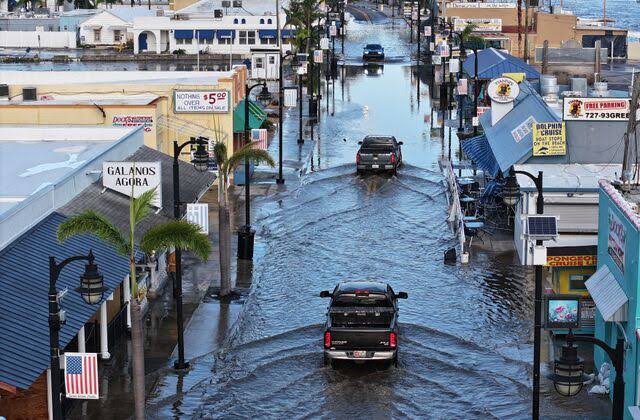- Safiu Kehinde
No fewer than 20 people have been confirmed dead as Hurricane Helene stormed the south-eastern United States.
The dangerous Category 4 storm weakened to a tropical depression by Friday afternoon.
The deaths were reported in US media across the states of Georgia, North Carolina, South Carolina and Florida with governor of Georgia said at least 11 people had died in his state.
Around 3 million people were without power across those states and beyond, with houses destroyed and entire communities flooded.
There were fears that many people could still be trapped under collapsed and damaged buildings. Many roads across the region were not passable.
The National Weather Service said Helene made landfall on the west coast of Florida as a Category 4 hurricane – the second highest category – but then began losing steam.
The service had warned of “historic and catastrophic flooding,” and in some places on Friday the water was about 5 metres high. There were also threats of mudslides due to the extreme rain.
Many victims were killed or injured by falling trees, while others died in their cars. In Florida, a woman drowned in her home, CNN reported.
In North Carolina, authorities warned that a dam could break and urged nearby residents to move to safety.
After pummelling the south-east, it began moving over the Appalachian mountains and affecting states like Tennessee and Virginia.
Helene had already caused flooding and power outages in Cuba as it barrelled toward the U.S.


